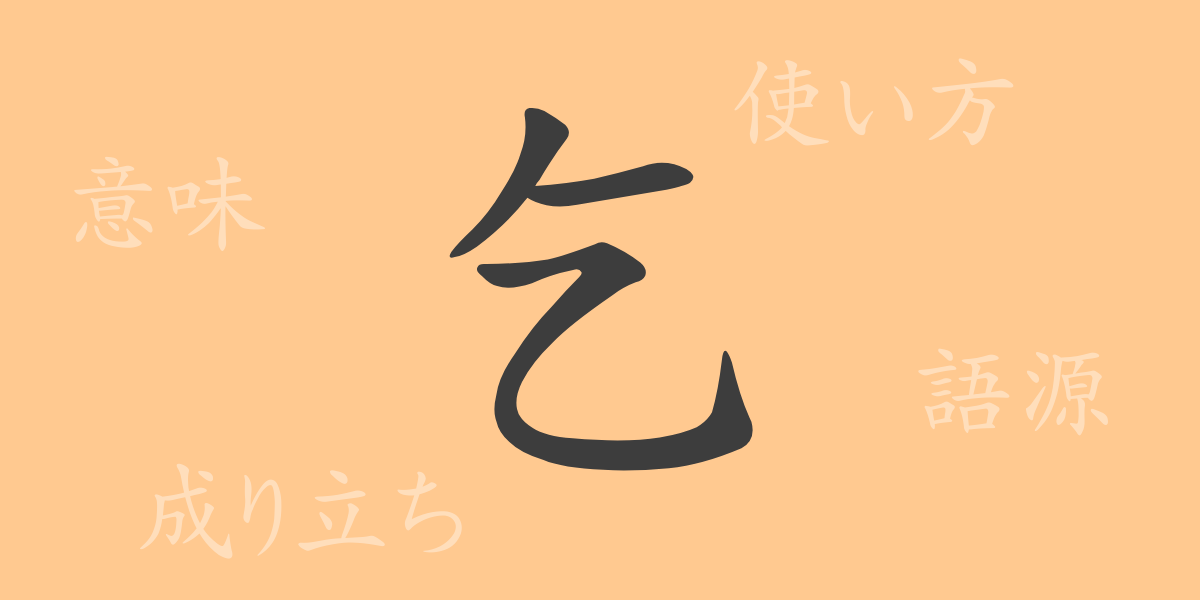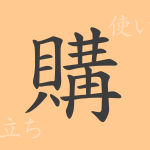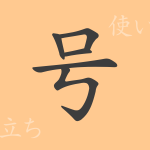Japanese written characters each have unique histories and meanings. Our focus today is on one of Japan’s common-use kanji, “乞(こつ).” Although it may not be frequently seen in daily life, this kanji has been used since ancient times and plays a significant role in specific contexts. This article delves into the origins, meanings, uses, and related expressions of “乞(こつ),” revealing its intriguing charm.
Origins of 乞(こつ)
The kanji “乞(こつ)” is an ideogram from ancient China, depicting a beggar extending his hand to request something. This simple yet powerful representation has been in use for thousands of years. As a character, “乞(こつ)” often symbolizes humility and the act of seeking mercy, with its form and meaning being passed down through the ages.
Meanings and Uses of 乞(こつ)
The kanji “乞(こつ)” means “to ask,” “to beg,” or “to seek.” It is primarily used to request something, demonstrating a humble stance. In modern Japanese, it is often found in formal documents or letters to express a request politely.
Readings, Stroke Count, and Radical of 乞(こつ)
Although “乞(こつ)” is not commonly used in everyday Japanese, understanding its characteristics can be beneficial.
- Readings: On’yomi (音読み) is “こつ”; Kun’yomi (訓読み) is “こ・う.”
- Stroke count: “乞(こつ)” has 3 strokes.
- Radical: The radical is “乙(おつ).”
Idioms, Phrases, and Proverbs Using 乞(こつ)
Idioms, phrases, and proverbs that include “乞(こつ)” can be found in classical literature and history. For instance, “乞食(こつじき)” literally means “a person who begs for things,” and “乞い願う(こいねがう)” expresses the act of earnestly wishing for something. These expressions are part of the rich tapestry of the Japanese language.
Conclusion on 乞(こつ)
The kanji “乞(こつ)” holds profound meaning, far beyond its simple form. It has been used since ancient times to symbolize the desires and pleas of people. Although not commonly used today, it remains one of the kanji that exemplifies the depth of the Japanese language. Through this article, we hope to have conveyed some of the charm of “乞(こつ).”

























